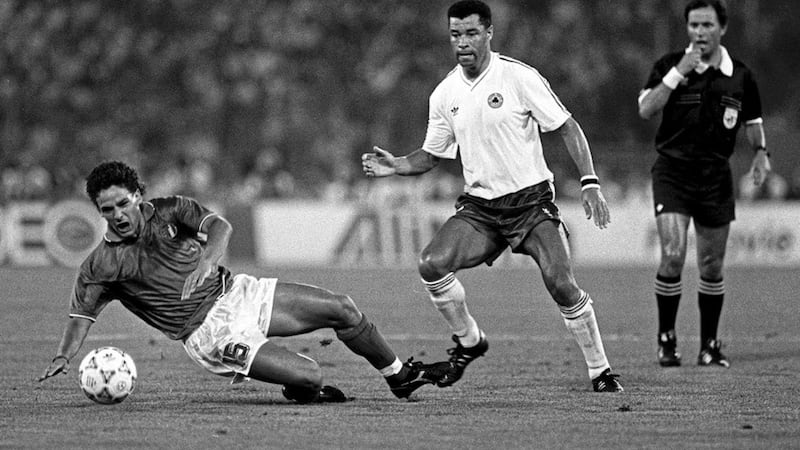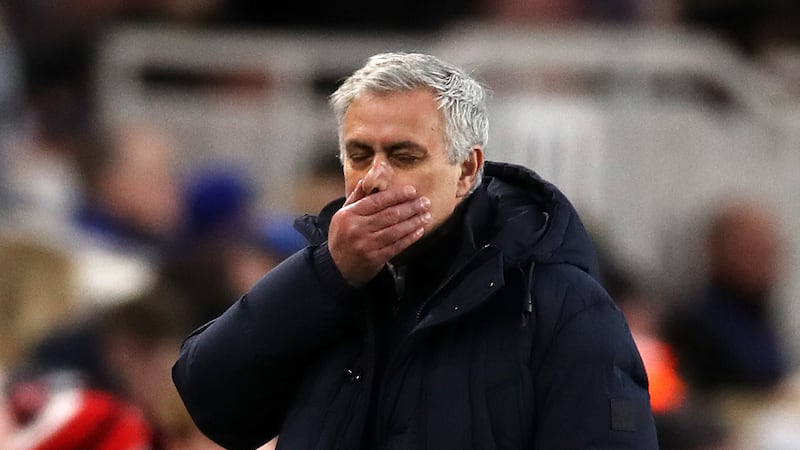THIS pandemic affects you in ways you never imagined. As we step tentatively out of lockdown the thought of embracing ‘normality’ again is unnerving.
Dormant WhatsApp groups are starting to ping again, like green shoots of recovery. Our youth football club has been pinging more than ever, readying itself for the greatest return to sport ever recorded.
And just when the club has meticulously planned its return and with every cone strategically placed, someone shifts the lockdown goalposts.
Usually for the good, mind.
There is Gaelic football training tomorrow for my daughter’s age group. Another gallant stab at ‘normality’.
The easing of restrictions also mean I can put some grass seed down on the bald patches of the garden – our children’s sanctuary over the last three months.
The garden itself is probably 30ft square feet but there have been a million miles clocked up on it, a million drag backs and wonder goals under the faded light that probably deserved a bigger audience than just my daughter and I.
There have been controversies and arguments too. Plenty of huffs and stamping of feet. And that’s just the adults.
The pandemic does weird things to you. The seasons have changed in front of our very eyes.
Seems like a short time ago we were running under deep and threatening turquoise skies to then cutting lawns and painting fences in summer time.
Somewhere in our sub-conscious we’ve resented the seasons changing without our consent while being holed up in our houses with hopeful rainbows in our windows.
That’s what a pandemic does to you. It cheats you out of the seasons. It cheats you out of time. It conditions you in a way that’s actually hard to make sense of.
Slotting back into normality probably won’t be a straightforward affair.
For instance, I thought I’d miss ‘live’ football matches on television.
When football did come back on our screens, albeit with artificial crowd noise and so many lifeless passages of play, you question the value of spending so many evenings watching hundreds of poor games.
Just as the pandemic has subtlety inserted new norms and values into our brains, we were conditioned in such a way that a noisy, atmospheric crowd seduced us into thinking a lot of football matches were worth watching.
Even allowing for empty stadia and the impact that can have on a player or a team’s performance, the modern game has become too homogenised, over-coached and bland.
For all the manufactured hype of Sky Sports, BT Sports, Amazon Prime and whoever else is trying to flog an English Premiership match for an over-priced fee, Match of the Day will always be the best way to watch football.
It can sift through the blandness and produce a highlights package that sates the appetite.
Last weekend, I spoke to Mick McCarthy and Ray Houghton by phone to help piece together a flashback feature on Republic of Ireland’s World Cup quarter-final with Italy in Rome 30 years ago.
Both former internationals were sitting in their living rooms watching football matches at the time. McCarthy was watching Nottingham Forest and Huddersfield Town. He thinks the Championship makes for better viewing than, say, the English Premiership.
I spoke to Houghton the day before and he was watching the FA Cup tie between Norwich and Manchester United.
That was a particularly painful watch.
“I’m sitting watching Norwich versus Man United in my front room,” said Houghton.
“The pitch is absolutely pristine, there’s no tackling, you’re never under pressure on the ball, nobody’s in your face, you can pass the ball around ’til your heart’s content. It’s easy. I just watched two players going for a tackle and both of them pulled out.”
Before speaking to the pair, I watched the full game between Ireland and Italy from Italia ’90.
It’s a game and style of football that stands the test of time.
In fact, for a World Cup that was derided for being dour - probably compounded by the fact Mexico ’86 was an exceptional tournament – when you sift through the games they actually compare very favourably to today’s football if not of the time.
Every player and team in the modern game seems to be placed in a tactical straitjacket. Everyone plays the same.
As a result, there is a distinct lack of leadership in teams.
When you look back on that Republic of Ireland team of the late 1980s and early 90s they were consistently regarded as the gutsy underdog – but they were laced with real quality.
“You talk about attacking full-backs now,” McCarthy said. “That was there back then. Chris Morris was fabulous going forward, so was ‘Stan’ [Steve Staunton] who was one of the best full-backs around.
“If you look at where all our players were playing at that time – apart from me, as I’d signed for Millwall from Lyon – they were from top clubs at the time.
“I looked at a match programme of that time and the team we had. We had Packie Bonner, Chris Morris, Chris Hughton, Kevin Moran, Paul McGrath Andy Townsend, Tony Galvin, Ray Houghton, Frank Stapleton and John Aldridge.
“At one point there were only four clubs represented: Celtic, Man United, Tottenham and Liverpool. We had a bloody good team, a proper team of good, intelligent footballers, hard workers, no moaners, all got on with. But some real talented players.”
If today’s football is a superior standard, then why is it we remember teams of 30 years ago better and more vividly than the current ones?
The truth is today’s football is desperately anodyne. Maybe watching old VHS videos of Italia 90 is the way forward.
Or maybe it’s the crankiness that comes with a pandemic.
Or maybe I need to get out more...







